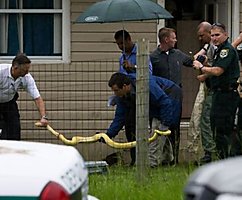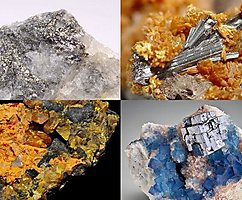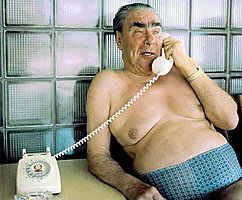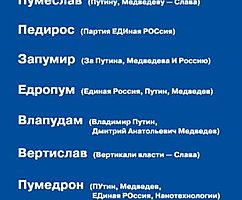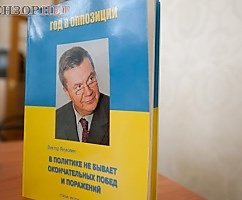Bull and bee - relatives. Because this language
 Bashny.Net
Bashny.Net
Most words with the letter "F" in Russian - borrowed. Pushkin was proud of the fact that in "The Tale of Tsar Saltan" was only one word with the letter "F" - the fleet.
In Russian, there are only 74 words that start with the letter "J". But most of us remember only the "iodine, yogi" and the city "Yoshkar-Ola».
In Russian there is a word on the "Y". This is the name of the Russian cities and rivers Ygyatta River, Yllymah, Ynahsyt, Ynykchansky, Ytyk-Kyuyol.
The only words in the Russian language with the three letters "e" in a row - a long-necked (and other -sheee on, for example, curvilinear, short) and "zmeeed».
In the Russian language has a word with a unique language for the prefix ko- - corner.
The only word of Russian, which has no root - remove. It is believed that in this word the so-called zero root, located in alternation with the root -im- (CON im amb). Previously, about the XVII century, the verb looked like vynyat, and there was a material root, the same as in the shoot, embrace, understand (Wed shoot, embrace, understand), but then the root -nya- was reconceived as the suffix - zero (as in the "stick", "blow»).
The only monosyllabic adjective in Russian - is "evil».
In Russian there is a word for the language with unique prefixes u, - total and total a- and - perhaps (obsolete. And eighth "and eighth unlucky") is derived from the word "and" and "a».
The words "bull" and "bee" - same root. In the works of ancient literature the word "bee" was written as "bchela." Vocalic b / s explains the origin of the two sounds from one Indo-European sound U. If you recall dialectal verb Bucha, a value of "a roaring, buzzing, humming," and etymologically related words bee, insect, and a bull, it becomes clear what was the total value of these words.
Dahl offered to replace a foreign word "atmosphere" at the Russian "kolozemitsa" or "mirokolitsa».
To the XIV century in Russia all the indecent words were called "ridiculous verbs».
In the Guinness Book of Records in 1993 the longest word of the Russian language is called "рентгеноэлектрокардиографического" in 2003 edition "превысокомногорассмотрительствующий».
In grammar dictionary of the Russian language AA Zaliznyak 2003 edition is the longest (in letters) common noun lexeme in the dictionary form - is the adjective "private business." Consists of 25 letters.
Longest verbs - "re-examine", "substantsionalizirovatsya" and "internationalized" (all - 24 letters, and word forms -uyuschimisya -vshis to 25 letters).
Longest nouns - "misanthropy" and "excellency" (24 letters, word form -s - 26 letters, however, "misanthropy" is practically not used in the plural).
Longest animate nouns - "odinnadtsatiklassnitsa" and "manageress" (21 letter word form -s - to 23 letters).
The longest adverb, fixed vocabulary - "unsatisfactory" (19 letters). However, we must note that the vast majority of qualitative adjectives to th / -y formed adverbs in -o / -e, not always recorded by the dictionary.
The longest interjection included in Grammatical Dictionary - "FizKult-hi" (15 or 14 characters, depending on the status of the hyphen).
The word "respectively" is the longest and the longest pretext Union simultaneously. It consists of 14 letters. The longest particle "exclusively" on a letter shorter.
In Russian, there is the so-called defective verb. Sometimes the verb does not have any shape, and this is due to the laws of euphony. For example: "to win." He wins, you win, I ... will win? will run? defeated? Philologists suggest using replacement design "I win" or "going to the winner." Since the form of the first person singular is missing, the verb is inadequate.
English for successful mastering difficult phrase "I love you" are mnemonics «Yellow-blue bus».

Source: www.adme.ru
In Russian, there are only 74 words that start with the letter "J". But most of us remember only the "iodine, yogi" and the city "Yoshkar-Ola».
In Russian there is a word on the "Y". This is the name of the Russian cities and rivers Ygyatta River, Yllymah, Ynahsyt, Ynykchansky, Ytyk-Kyuyol.
The only words in the Russian language with the three letters "e" in a row - a long-necked (and other -sheee on, for example, curvilinear, short) and "zmeeed».
In the Russian language has a word with a unique language for the prefix ko- - corner.
The only word of Russian, which has no root - remove. It is believed that in this word the so-called zero root, located in alternation with the root -im- (CON im amb). Previously, about the XVII century, the verb looked like vynyat, and there was a material root, the same as in the shoot, embrace, understand (Wed shoot, embrace, understand), but then the root -nya- was reconceived as the suffix - zero (as in the "stick", "blow»).
The only monosyllabic adjective in Russian - is "evil».
In Russian there is a word for the language with unique prefixes u, - total and total a- and - perhaps (obsolete. And eighth "and eighth unlucky") is derived from the word "and" and "a».
The words "bull" and "bee" - same root. In the works of ancient literature the word "bee" was written as "bchela." Vocalic b / s explains the origin of the two sounds from one Indo-European sound U. If you recall dialectal verb Bucha, a value of "a roaring, buzzing, humming," and etymologically related words bee, insect, and a bull, it becomes clear what was the total value of these words.
Dahl offered to replace a foreign word "atmosphere" at the Russian "kolozemitsa" or "mirokolitsa».
To the XIV century in Russia all the indecent words were called "ridiculous verbs».
In the Guinness Book of Records in 1993 the longest word of the Russian language is called "рентгеноэлектрокардиографического" in 2003 edition "превысокомногорассмотрительствующий».
In grammar dictionary of the Russian language AA Zaliznyak 2003 edition is the longest (in letters) common noun lexeme in the dictionary form - is the adjective "private business." Consists of 25 letters.
Longest verbs - "re-examine", "substantsionalizirovatsya" and "internationalized" (all - 24 letters, and word forms -uyuschimisya -vshis to 25 letters).
Longest nouns - "misanthropy" and "excellency" (24 letters, word form -s - 26 letters, however, "misanthropy" is practically not used in the plural).
Longest animate nouns - "odinnadtsatiklassnitsa" and "manageress" (21 letter word form -s - to 23 letters).
The longest adverb, fixed vocabulary - "unsatisfactory" (19 letters). However, we must note that the vast majority of qualitative adjectives to th / -y formed adverbs in -o / -e, not always recorded by the dictionary.
The longest interjection included in Grammatical Dictionary - "FizKult-hi" (15 or 14 characters, depending on the status of the hyphen).
The word "respectively" is the longest and the longest pretext Union simultaneously. It consists of 14 letters. The longest particle "exclusively" on a letter shorter.
In Russian, there is the so-called defective verb. Sometimes the verb does not have any shape, and this is due to the laws of euphony. For example: "to win." He wins, you win, I ... will win? will run? defeated? Philologists suggest using replacement design "I win" or "going to the winner." Since the form of the first person singular is missing, the verb is inadequate.
English for successful mastering difficult phrase "I love you" are mnemonics «Yellow-blue bus».

Source: www.adme.ru
Tags
See also
What do Americans think of the Russian Army (10 photos)
What Americans think about the Russian army ...
Holes of consciousness or words that are forbidden for use
Who is the Okapi?
"Obonato" in their language means: "I exist because we exist."
INTERESTING ABOUT RUSSIAN LANGUAGE:
What is the "Beatles" what is their success?
Just like that - because Big Mac
12 of the Rules of language learning in record time
What is the "free will", and whether it is a person



